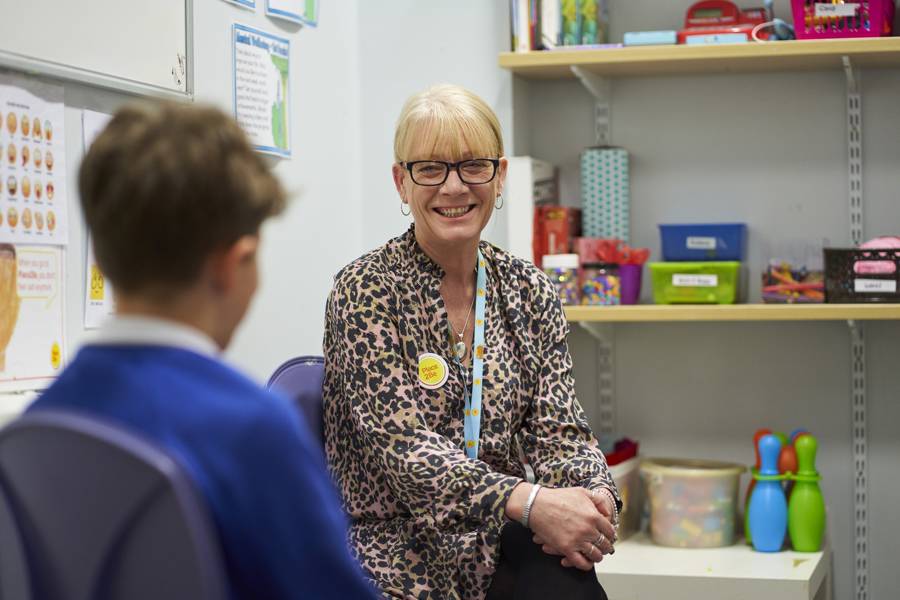
Supporting parents in England to improve children’s mental health
“I felt like I was losing my ability to parent but I have that back now,” said one parent in England’s West Midlands. “My children respect me now and even my friends have noticed the positive changes.”
The positive changes this parent achieved were supported by a Family Practitioner from Place2Be, a UK nonprofit that for nearly three decades has worked to improve young people’s mental health. In 2022, the Stavros Niarchos Foundation (SNF) made a two-year grant in support of Place2Be’s Family Practitioner program in Northern England and the Midlands.
Working through nearly 60 partner schools, Place2Be Family Practitioners reach families where children’s behavioral challenges, issues like aggressive actions and lying, are causing strain—and in some cases risking their expulsion from school. Family Practitioners sit down in person with parents and children and guide them through the Personalised Individual Parenting Training (PIPT) program, a model built on intensive, face-to-face intervention.
In the last academic year, Place2Be delivered 294 PIPT sessions in the Midlands and 422 in Northern England to a total of 117 families, a marked increase over the previous year.
Jenny, a Place2Be Family Practitioner in the East Midlands, emphasizes the individualized character of the six to ten PIPT sessions she’ll have with a family over the course of a year. “The work that I have done with families through PIPT has been heart-warming; being a part of a journey and supporting the families is wonderful and I feel honored to be able to deliver this work. No two days are the same. I am enjoying working with the schools and learning about their communities—thinking about ways to engage families and support schools with this.”
Family Practitioners spend time learning about the cultural contexts of the partner schools they work with, coordinating to safeguard vulnerable children and adults, and connecting families with additional services that are beyond Place2Be’s purview.
A frequent challenge Family Practitioners help parents face is self-doubt and lack of confidence in their parenting ability. “I got scared when Tim had some problems in school, I didn’t know what to do,” said one mother in the Midlands. Their Family Practitioner helped empower Tim’s mother with a plan of action to respond with confidence, and they brought the whole extended family on board in creating conditions that would help Tim behave appropriately, from a sticker-based reward system for Tim to an increase in the types of positive attention Tim received when he wasn’t misbehaving.
“The work Tim and Mum have done together has been so lovely to see. Mum has tried hard with this and it has paid off,” said Tim’s grandmother of the change.
“Thank you for all your help,” said Tim to his Family Practitioner. “I love talking to you and what has happened in here has helped me at home and in school.”
In a brief survey given to PIPT participants in the Midlands and Northern England before and after the program, parents reported that their confidence in their own parenting skills rose by nearly a quarter over the last academic year.
To make PIPT support accessible to more parents, Place2Be also offers interactive, asynchronous online courses based on the framework that covers topics including giving clear instructions and setting boundaries. A completion rate that had risen to nearly 30% by the end of the last academic year, as compared with an industry average of 7%, speaks to the need for the courses’ well-targeted and engaging content.
“The more people that can utilize Place2Be, the better off the children, parents and carers will be,” says one caregiver who has taken part in the PIPT program.
Another mother from the Midlands who participated asked, “I have learnt more in the past few weeks than I did all the time in school—why don’t they offer this to everyone?”